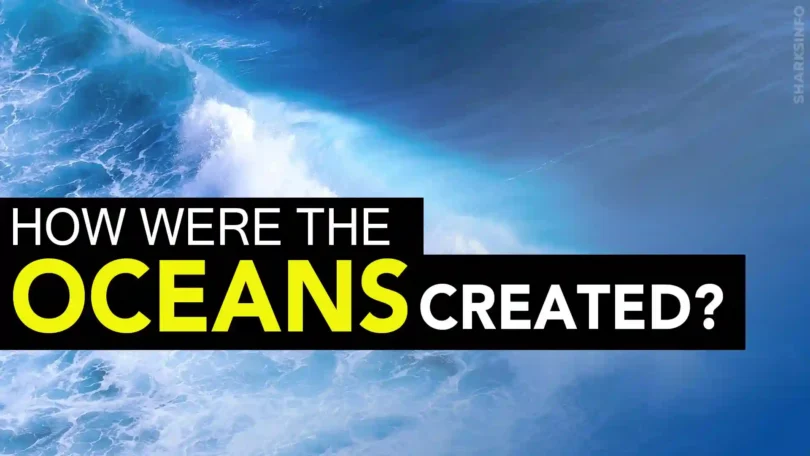Approximately, water covers about 70% of the earth, out of which 97.2% of total water is found in the oceans. The ocean is significantly important for the existence of the universe as it plays a major role in changing the atmospheric condition, allowing diverse species to survive. But have you ever thought about how these oceans have been formed? In this article, we are going to give a brief description of it to reveal the mystery behind the creation of oceans.
How Were The Oceans Created?
Numerous theories have been presented by researchers to explain the creation of extremely large water bodies but with the passage of time, these theories have evolved. The most recent idea accepted by scientists is the volcanic outgassing theory.
According to this theory, for billions of years, volcanic eruptions caused the escape of water vapors and other gases from the Earth’s surface, which were then condensed and cooled naturally to form the oceans of the Earth.

What Is The History Behind The Creation Of Oceans?
About 4.6 billion years ago, when the Earth was created, there were no oceans or other water bodies, and even no oxygen was present in the atmosphere, which means that there was no life on the Earth at that time. Instead, there were volcanic eruptions, explosions, and violent collisions, which ignited the molten stage of Earth.
Further, these activities resulted in the separation of different components – the gravitational forces allowed the heavy elements to move toward the central regions, and the lighter components accumulated near the surface of the Earth. This separating method created different layers – the water column, referring to the division of the ocean into many strata.
How is Water Collected in the Oceans?
After the volcanic eruption causes the escape of water vapors, the temperature of the Earth begins to cool down and the surface becomes solidified – creating the atmosphere. The lowering of Earth’s temperature below the boiling point changes the climatic conditions and rainfall happens. The initial ocean was created as the water drained into the large voids on the surface of the Earth. Further, gravity prevented the water from escaping the oceans – thus continuing to be collected for a long time.

What is the Purpose of Oceans’ Creation?
The oceans play a significant role in maintaining the balance of the Earth by supporting a diverse variety of lifeforms not only under the water surface but also on land, creating a majority of biomass. Moreover, it keeps the temperature of the planet quite stable by absorbing the heat from the sun, reaching the Earth’s surface. The ocean also regulates the water cycle of the Earth by converting the vapors into liquid form which falls on land in the form of rain or precipitation such as ice or snow.
Final Words
The formation of large water bodies, the oceans, is supported by the recent theory of volcanic outgassing which depicts that volcanic eruptions and explosions occurring naturally for billions of years are responsible for the creation of oceans. These activities cause the escape of water vapors into the atmosphere, lowering the temperature by converting the vapors into a liquid state, thus changing the majority portion of Earth into large water bodies, named oceans today.







